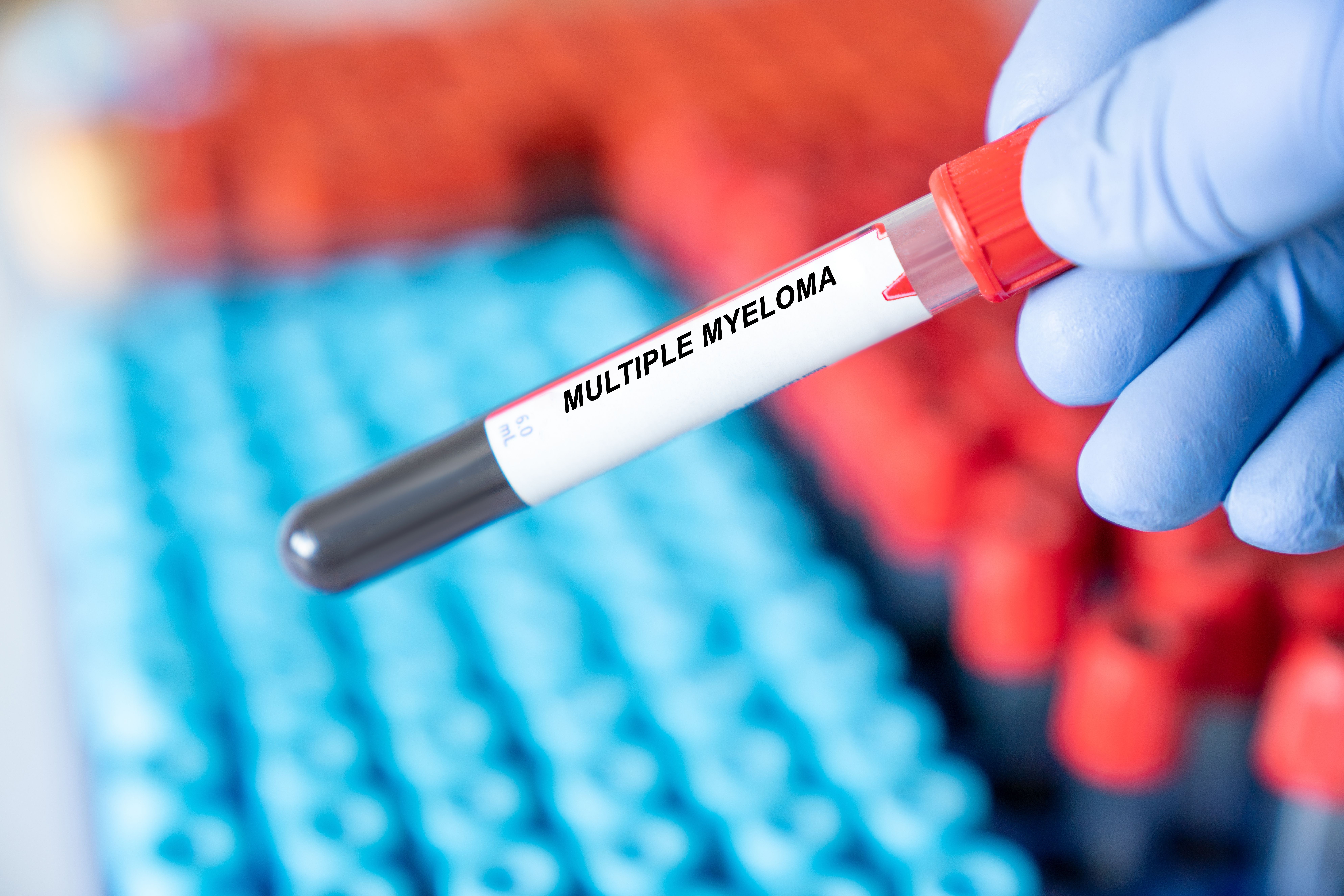IVIg Treatment Significantly Reduces Risk of Severe Infections in Patients With Multiple Myeloma
IVIg treatment may need to be given proactively both throughout the duration of anti-BCMA bispecific antibody therapy and afterward.
An intravenous (IV) form of immunoglobin (Ig) significantly reduced the risk of severe infections in patients with multiple myeloma undergoing treatment with an anti–B-cell maturation antigen (BCMA) bispecific antibody, according to study authors who recently published their findings in Blood Cancer Discovery. Although anti-BCMA bispecific antibodies had previously shown efficacy among patients with heavily pretreated multiple myeloma, there is a high rate of severe—in some cases, fatal—infections in patients who receive this kind of therapy.1
Image credit: luchschenF | stock.adobe.com

The study authors had previously found that a patient’s increased risk of infection when receiving anti-BCMA therapy may be a result of treatment-induced hypogammaglobulinemia, which involves a depletion of the patient’s antibodies. Because of this association, the study authors supplemented patient antibody levels through an IV delivery of Ig (IVIg) to minimize the patients’ risk of infection.1
“Since antibodies are key components of the immune response, the inability to make antibodies leaves patients vulnerable to all sorts of viral and bacterial infections. As more and more patients start receiving BCMA-targeted bispecific antibodies, it is critical that physicians become aware of this toxicity and learn how to manage it,” said lead author Guido Lancman, MD, clinical associate of the Princess Margaret Cancer Center of the University Health Network, adjunct professor at the University of Toronto, in a press release.1
Among 37 enrolled patients in the study, 15 (41%) had experienced grade 3 to 5 infection, with 2 deaths due to infection occurring during deep remissions. Further, most of the infections (84%) had occurred during disease remissions.
A total of 26 patients (100%) who experienced clinical responses to an anti-BCMA bispecific antibody had severe hypogammaglobulinemia that continued throughout the duration of treatment. When patients received IVIg, the rate of grade 3 to 5 infections had decreased by 90% during observation (incidence rate ratio, 0.10; 95% confidence interval, 0.01–0.80; P = 0.0307), with no other risk factors being identified at follow up.2
The study authors noted that because the patients’ antibodies did not recover either on treatment or during off-treatment periods, it is possible that IVIg may need to be given both throughout the duration of anti-BCMA bispecific antibody therapy and afterward.1
“This study demonstrates that IVIg is associated with a substantially reduced risk of serious infections in patients receiving anti-BCMA bispecific antibodies,” Lancman said in the press release. “Given the very high rates of serious infections and deaths in patients receiving these treatments, this study supports a proactive rather than a reactive approach, meaning initiation of IVIg prophylaxis from the beginning rather than waiting for patients to experience complications.”1
Study limitations include the small population evaluated during the trial, the non-random use of IVIg, and the lack of generalizability due to the analysis being conducted on patients enrolled from a single institute. Further, the study authors emphasize that alternative strategies are necessary in order for anti-BCMA therapies to be considered in earlier lines of treatment.1
“It would not be feasible to maintain every [patient with multiple myeloma] on IVIg indefinitely, so hopefully we will start to see more fixed-duration studies of these bispecific antibodies in order to allow the immune system the opportunity to recover,” said Lancman in the press release.1
References
- American Association for Cancer Research. Intravenous Immunoglobulin May Prevent Severe Infections Associated with Anti-BCMA Therapy for Multiple Myeloma. News release. September 28, 2023. Accessed September 29, 2023.
- Lancman G, Parsa K, Kotlarz K, et al. IVIG Use Associated with Ten-Fold Reduction of Serious Infections in Multiple Myeloma Patients Treated with Anti-BCMA Bispecific Antibodies. Blood Cancer Discovery. 2023;4(5). doi:10.1158/2643-3230.bcd-23-0049
